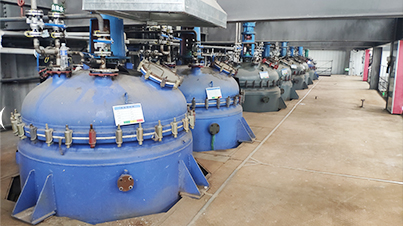Effective Strategies for Water Treatment Using Scale Inhibitors to Enhance System Longevity and Efficiency
Scale Inhibitor Water Treatment A Key to Efficient Water Management
Water treatment is an essential process that ensures the availability of clean and safe water for various applications, including drinking, industrial, and agricultural uses. One of the significant challenges in water treatment is scaling, which refers to the accumulation of mineral deposits on equipment and surfaces. This article explores the role of scale inhibitors in water treatment, their mechanisms, benefits, and importance in maintaining efficient water management systems.
Understanding Scale Formation
Scale formation typically occurs when water containing dissolved minerals, particularly calcium and magnesium, undergoes changes in temperature or pressure, leading to supersaturation. As the water becomes supersaturated, these minerals precipitate out of the solution, forming solid deposits. Common types of scale include calcium carbonate and calcium sulfate, which can accumulate in pipes, boilers, heat exchangers, and cooling towers. This not only hinders the efficiency of water systems but also leads to increased operational costs due to maintenance and energy inefficiencies.
The Role of Scale Inhibitors
Scale inhibitors are chemical agents that prevent or reduce the formation of scale. They work by interfering with the crystallization process of scale-forming minerals. Scale inhibitors can be categorized into several types, including
1. Threshold Effect Inhibitors These compounds prevent crystals from forming by remaining in solution at concentrations lower than those required to induce precipitation. 2. Dispersants These agents prevent the aggregation of existing scale particles, keeping them suspended in the water, which helps in avoiding deposition on surfaces.
3. Crystal Growth Inhibitors These substances inhibit the growth of existing crystals, thus reducing the overall scaling process.
Some commonly used scale inhibitors include phosphonates, polyacrylic acids, and organophosphates
. The choice of a specific inhibitor depends on the water chemistry, the type of scale being addressed, and the operational conditions of the system.scale inhibitor water treatment

Benefits of Using Scale Inhibitors
1. Enhanced Equipment Longevity Scale buildup can cause significant damage to equipment, necessitating costly repairs and replacements. By preventing scale formation, scale inhibitors extend the lifespan of critical components in water systems.
2. Energy Efficiency In systems such as boilers and heat exchangers, scaling can significantly reduce heat transfer efficiency, leading to higher energy consumption. By maintaining better heat transfer properties, scale inhibitors help optimize energy use, resulting in lower operational costs.
3. Reduced Maintenance Costs Regular cleaning and maintenance of equipment affected by scaling can be resource-intensive. The use of scale inhibitors minimizes the frequency and severity of scaling, reducing overall maintenance efforts and costs.
4. Improved Water Quality In industrial processes, the presence of scale can adversely affect product quality. By controlling scale, inhibitors help maintain the integrity and consistency of products, particularly in the food and beverage sector.
5. Environmental Benefits Efficient water management facilitated by the use of scale inhibitors leads to reduced water wastage and lower chemical usage for cleaning and maintenance, contributing to more sustainable water practices.
Conclusion
The implementation of scale inhibitors in water treatment is a proactive approach to managing scale formation and its associated challenges. By understanding their mechanisms and benefits, industries can enhance the efficiency and longevity of their water systems while ensuring that they meet regulatory and quality standards. As the demand for clean water continues to grow, the role of scale inhibitors will become increasingly vital in achieving effective and sustainable water management practices.
-
Pbtc Scale InhibitorPBTC: A Scale Protector for Industrial Water TreatmentNewsAug.05,2025
-
Organic Phosphonate: An Efficient Defender in the Field of Scale InhibitionNewsAug.05,2025
-
Hydrolyzed Polymaleic Anhydride: Green Pioneer in Scale Inhibition FieldNewsAug.05,2025
-
PAPEMP Polyamino Polyether Methylene Phosphonic Acid For SaleNewsAug.05,2025
-
Flocculant Water Treatment: A Pioneer in Purification in the Field of Water TreatmentNewsAug.05,2025
-
Benzyl Isothiazolinone: An Efficient and Broad-Spectrum Antibacterial Protective GuardNewsAug.05,2025





